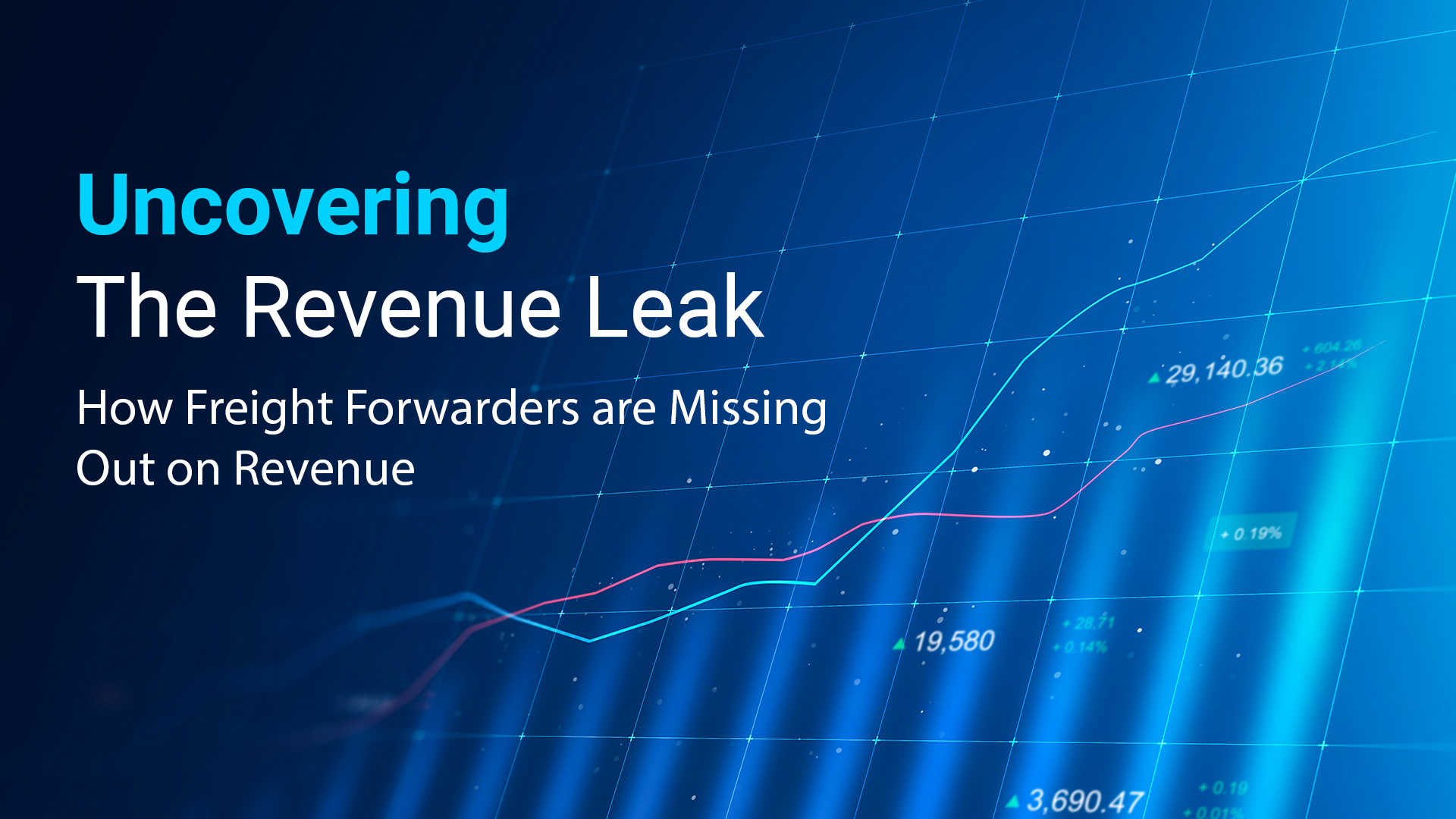What’s in the article:
- How are freight forwarder’s profits calculated
- Why is it hard for freight forwarders to make profits
- Tips to maximize profits from freight bookings
How are Freight Forwarders’ Profits Calculated?
Freight forwarding is a unique industry in the sense that it is primarily an intermediary, playing the role of a facilitator, helping ease the procedural and documentary complexities of freight transport movement for exporters and importers.
Given that most freight forwarders typically operate on an asset-light model, their core value addition lies in planning and providing efficient and cost-effective end-to-end transport solutions by liaising with various transport providers and negotiating the best rates possible.
Forwarders make money by charging a markup on the cost of services quoted by various vendors, such as shipping lines, rail companies, road haulers, container freight stations, and warehouse operators.
Besides, forwarders need to incorporate the cost of customs clearance, documentation charges, additional handling, and other miscellaneous expenses that are incurred during the transport process.
Apart from these direct costs, forwarders then have to bear sales, operational and administrative costs.
When bidding for any shipment, the forwarder will total all these costs and then add a certain amount to the final quote, which is presented to the customer.
The forwarder’s profit for that particular shipment is thus the difference between the total costs towards arranging the cargo movement and the amount paid by the customer.
Why is it Hard for Freight Forwarders to Make Profits?
While forwarders provide a critical service, their profits are frequently incommensurate with the scope of services provided or the extent of effort involved, and profit margins are often slim.
Given that forwarders perform complicated functions, requiring considerable expertise, knowledge of customs formalities and applicable regulations, and soft skills to negotiate with multiple stakeholders, it might seem counter-intuitive that they find it difficult to make profits.
This is due to diverse factors such as volatility in the freight transport market, macro-level uncertainty upending traditional cost patterns, and the inherent risks that are concomitant to the international carriage of goods.
Another major factor is the cutthroat competition that characterizes the freight forwarding industry, with the presence of innumerable players at the local, regional, national, and international levels.
Given that the barriers to entry in the freight forwarding business are virtually non-existent, the market is replete with forwarders of varying scale and product offerings.
Tips to Maximize Profits from Freight Bookings
A perusal of industry-wide best practices and analysis of successful freight forwarders reveals certain courses of action that freight forwarders can undertake to maximize profits from freight bookings.
We have shared some of the most effective tips:
1. Increasing customer base and handling a greater number of freight inquiries
A basic rule of thumb in any business is to increase the customer base and also handle as many inquiries as possible to ensure a higher probability of conversion of quotes to wins.
Freight forwarders need to focus on market penetration by scouring the market to identify and approach all potential customers.
The resulting greater number of freight inquiries will greatly enhance the probability of successful quotes.
2. Increase win rates for existing customers
Numerous studies have proved that the cost of retaining and upselling to existing customers is lesser than the cost of acquiring new customers.
Therefore, freight forwarders should also focus on their existing customer base and ensure that they win a higher proportion of quoted business.
The easiest way to do this is by quoting faster and ensuring that the quotes are both accurate and competitive.
Providing faster quotes can be a competitive differentiator in a market where more freight forwarders can take up to 2 days to just respond to a customer's inquiry.
3. Optimise quoting process
Freight forwarders need to have a complete overview of all the rates available in the market, evaluate and identify the competitive ones, and thereafter create a comprehensive solution offering an optimal balance between cheap rates and good service.
Given how manual and cumbersome this task can be, freight forwarders could use freight forwarding software such as Freightify’s bespoke quoting solutions that enable you to procure, manage and quote freight prices (including ancillary charges) in less than 2 minutes.
4. Increasing margins for each freight quotation
By having visibility into rates offered by multiple shipping lines and the ability to quote faster and more accurately, freight forwarders can ensure a higher markup on each freight component, thus resulting in higher margins for each quotation.
The incremental margins can vary, depending on services offered, such as multiple flexible rates and schedules.
Freightify’s rate management software facilitates this by allowing users to add margins automatically by using customizable parameters.
5. Signing long-term contracts with Shipping companies
Shipping companies generally offer two types of rates, depending on the contractual relationship and length of the contract.
Relatively higher spot rates are offered for ad hoc business.
In contrast, competitive rates are offered where long-term contracts are signed where the customer can commit to a steady flow of volumes over a multi-month period.
Freight forwarders can leverage this by signing long-term contracts and obtaining lower rates with longer validity.
This reduces their cost of procuring shipping capacity, which has a direct positive impact on profits.
This phenomenon was most recently observed during the Covid-linked transport disruptions, when spot rates reached record highs, whereafter shipping companies started enticing customers by offering lower rates for long-term contracts.
This essentially was a trade-off between a long-term volume commitment in exchange for lucrative freight rates. It enabled forwarders to offer their customers lower rates than those prevailing in the spot market.
6. Join freight networks and connect with agents worldwide
Considering the global scope of the shipping business, freight forwarders will find it beneficial to join freight networks and connect with agents worldwide to get more freight rate and routing options, enabling the forwarder to offer more diverse and robust products to their customers.
7. Equip salespersons with technology
If the forwarder's salespersons are equipped with the appropriate technology, they can focus on selling smarter and increasing the win ratio from new and existing customers rather than having to spend time on operational activities.
With the plethora of supply chain software available in the market today, the freight forwarding process can be made much more efficient and faster by investing in the requisite technology.
8. Empowering backend teams with technological systems to ensure better customer experience
The operational activities that a freight forwarders backend team has to perform involve multiple rote tasks, which are time-consuming and laborious in nature.
By investing in Freightify’s digital solutions offering functionalities such as ‘Track and Trace,’ the backend team can operate seamlessly and provide faster service, thereby improving customer satisfaction levels.
9. Designing integrated logistics solutions apt for the customer’s unique requirements
Incorporating technology can enable freight forwarders to move beyond offering basic transport services to proving more complex supply chain solutions, integrating multi-modal transport, warehousing, packaging, and handling.













